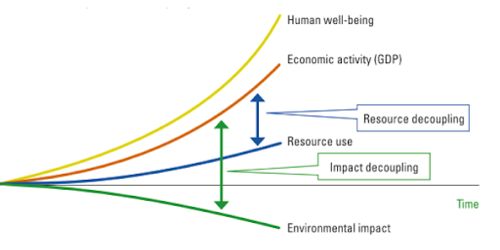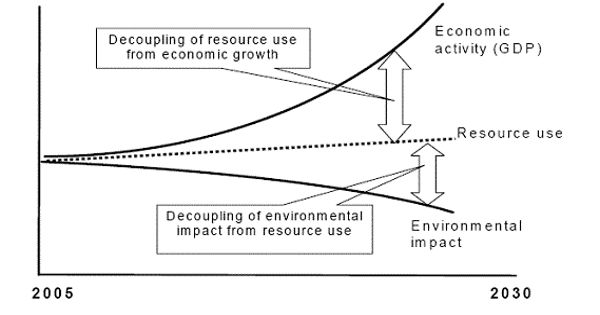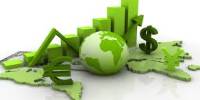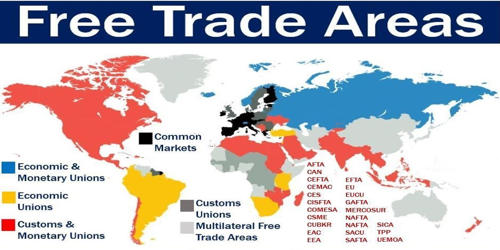In economic and environmental fields, decoupling refers to an economy that would be able to grow without corresponding increases in environmental pressure. It takes place when different asset classes that typically rise and fall together start to move in opposite directions, such as one increasing and the other decreasing. In many economies, increasing production (GDP) currently raises pressure on the environment. It may also refer to a disconnect between a country’s investment market performance and the state of its underlying economy.
“The term ‘decoupling’ refers to the possibility of detaching economic growth from environmental pressures. Generally, it occurs when oil moves in one direction and natural gas moves in the opposite direction.”
Economic growth is a measure of market activity, most often Gross Domestic Product (GDP), while environmental pressures include all the consequences an economy has on nature – a useful distinction being between resource use and environmental impacts. An economy that would be able to sustain economic growth while reducing the number of resources such as water or fossil fuels used and delink environmental deterioration at the same time would be said to be decoupled. One example can be seen with oil and natural gas prices, which typically rise and fall together. Decoupling occurs when oil moves in one direction and natural gas moves in the opposite direction. It can be measured by decoupling indicators that have an environmental pressure variable for the numerator and an economic variable as a denominator.

Decoupling material use and economic performance
The term ‘decoupling’ refers to the possibility of detaching economic growth from environmental pressures. Environmental pressure is often measured using emissions of pollutants, and decoupling is often measured by the emission intensity of economic output. It is a situation in which two or more activities are separated, or do not develop in the same way. The validity of the green growth discourse relies on the assumption of an absolute, permanent, global, large, and fast enough decoupling of economic growth from all critical environmental pressures.
The OECD defines the term as follows:
The term ‘decoupling’ refers to breaking the link between “environmental bads” and “economic goods.” It explains this as having rates of increasing wealth greater than the rates of increasing impacts. Generally speaking, two variables are said to be ‘coupled’ if one evolves in proportion with the other (e.g. more of A means more of B), and they decouple when they cease to do so. What matters for sustainability is the nature of that decoupling: its magnitude, scale, durability, and how effective it is in achieving environmental targets.
















